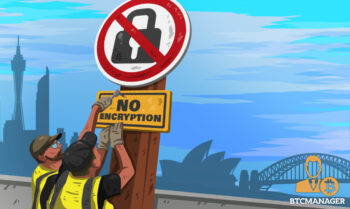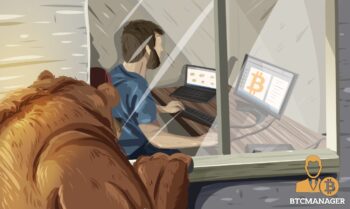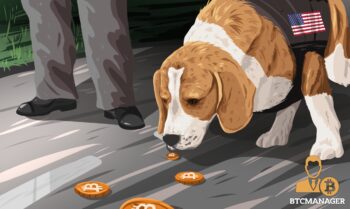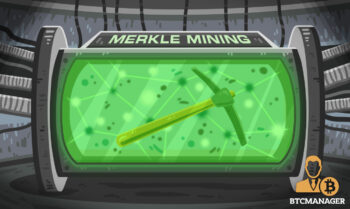2022-8-15 18:23 |
Blockchain stands at the forefront of disruptive technologies. Its transparency, security, and cost-efficiency have benefited many industries like supply chain and payments in taking the next quantum leap.
However, there has been minimal traction in the $360 Trillions1 Real-World Assets (RWA) market including intellectual property, commodities, and other assets.
The marketplaces for these assets are fragmented and full of frictions resulting in the lack of liquidity and interests from both asset owners and investors.
Seeing the size of market opportunity, blockchain platforms emerged with promising solutions involving asset tokenization. By leveraging smart contracts and blockchain technology, RWA can be turned into digital tokens resulting in greater access to exposure and liquidity.
1Real World Asset value is estimated to be $256T in 2018 and applying 5% annual growth until 2025 (Futurism article based on Credit Suisse figures)
Bringing Real-World Assets to LifeLet’s pick an example of commodities. Every bar of gold, barrel of oil, and inch of real estate have a combined value of $510+ trillion as of 2021 according to a recent McKinsey Global Institute Report. However, only a fraction of those assets are considered liquid.
For RWA to have liquidity, the ownership stake has to be distributed, similar to how companies raise massive amounts of money when they issue an IPO. With blockchain, the assets become represented as tokens (asset-backed tokens) that can be easily traded in an open market. Investors can avoid traditional brokers and transact at lower costs.
Blockchain also ensures transparency and provability of tokens on the distributed ledger, which helps a great deal in price discovery and market making. Even on the regulatory front, companies won’t have to face any scrutiny when issuing tokens backed by RWA, be it tangible or intangible.
As a result, the barriers of entry and the “liquidity premium” are significantly lowered. Looks like win-win solutions for both sides of the equation right?
Unlocking Real-World Assets FinancingConverting illiquid to liquid assets is only one part of the equation. For an enterprise to efficiently use its assets to increase working capital, they also have to get valuations right. This is even more essential when someone decides to use intellectual property like trademarks and patents as collateral.
But the problem with valuing RWA is there isn’t enough data or financial history. It involves taking many assumptions regarding future cash flows and growth. So there is a need for an accurate value estimator to fill the gaps in RWA financing. While the markets are waking up to seize this opportunity, very few financial institutions have figured it out.
On the other hand, deep technology and software platforms like Ovenue are integrating blockchain combined with artificial intelligence (AI) and machine learning (ML) technologies to develop innovative solutions. From providing valuation and legal framework to asset tokenization and marketplace, Ovenue has built a perfect set of financial products to extract maximum value for RWAs. Ovenue’s model is easy to understand; value, tokenize and monetize.
Currently, it takes weeks and even months and multiple stakeholders to monetize the majority of RWA resulting in added complexity, costs as well as lots of bias and errors.
With Ovenue, these processes now follow a frictionless experience through state-of-the-art technology. Asset valuation and tokenization now takes minutes!!
With over $80M in RWA under management, Ovenue is establishing avenues for asset owners to raise capital and investors to diversify their portfolios.
Further, Ovenue leverages advanced technologies to implement industry-standard methods like Relief from Royalty to fully unlock the potential of RWA. Currently, the diverse asset pool on Ovenue features fashion brands, inventory for e-commerce platforms, medical & cleantech patents, copyright and franchising agreements and prime real estate.
The asset-backed tokens, a form of non-fungible tokens (NFTs) issued to the Asset Owners can then represent various utilities and opportunities that are truly determined by the Asset Owner.
For example, the asset owner can obtain non-dilutive funding by using the asset-backed tokens (in NFT format) as collateral.
As Ovenue uses smart contracts, the terms and conditions of the deal can be customized using various financial instruments. Possibilities are endless.
Tokens issued by Ovenue are asset-backed tokens, not securities. They are a type of NFTs, a unique digital identifier that cannot be copied, substituted, or subdivided, that is recorded in a blockchain, and that is used to certify authenticity and ownership.
Ushering New Class of Alternative InvestmentsOvenue can offset the deterioration of a company’s balance sheet by tokenizing RWA and leveraging technology. It helps create private markets for homogeneous asset pools and provides accurate valuations. As a result, assets that were simply sitting idle will be able to serve as a growth vehicle. Many businesses have undisclosed and undervalued assets. Ovenue unlocks and monetize the value of your RWA.
In addition, asset tokenization of RWAs also creates alternative investments in the financial markets. Investors can finally tap into a wide-range of high-growth asset classes and truly diversify their portfolios. With more awareness and institutional participation, such blockchain solutions can truly revolutionize finance and make the industry accessible to all.
origin »
Bitcoin price in Telegram @btc_price_every_hour
High Performance Blockchain (HPB) íà Currencies.ru
|
|

















